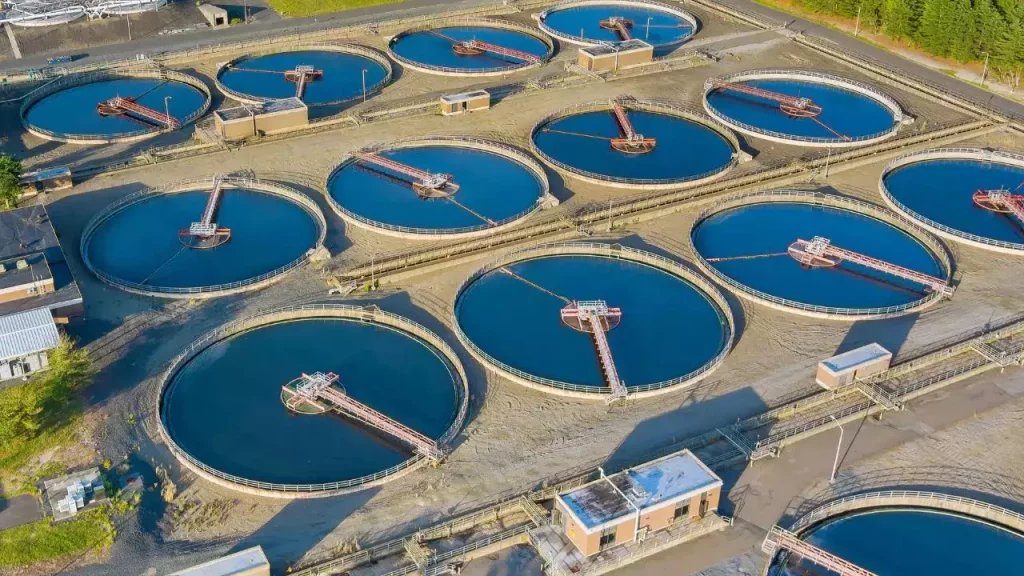In a world where water is a growing concern, have you ever thought about the simple yet impactful act of recycling water?
The idea of reusing water may seem confusing at first, but with a few practical steps, you can make a significant difference in conserving this precious resource.
From understanding the benefits of water recycling for your business, greywater services, implementing systems and more, there are various ways you can contribute to a more sustainable future.
Benefits of Water Recycling
By recycling water, you can help conserve this precious resource and protect the environment for future generations. Water recycling offers numerous benefits that positively impact both our planet and society.
Recycling water reduces the strain on freshwater sources, such as rivers and lakes, by providing an alternative water supply for various non-potable uses like irrigation and industrial processes. This conservation of freshwater is crucial in regions facing water scarcity or droughts.
Embracing water recycling fosters a sense of responsibility towards our environment and encourages sustainable practices in daily life.
By being mindful of water usage and promoting recycling initiatives, individuals can contribute significantly to preserving water resources and protecting our planet for future generations.
Types of Recycled Water
Water recycling involves various methods that transform wastewater into usable water. Three main types of recycled water serve distinct functions.
The first type is non-potable recycled water, which is treated wastewater, or greywater, that is not intended for drinking but is suitable for activities like irrigation, industrial processes, and toilet flushing. This water undergoes treatment processes to remove contaminants and impurities, making it safe for these specific uses.
The second type is potable recycled water, also known as reclaimed water, which is treated to a high standard suitable for drinking. This water goes through advanced purification processes such as filtration, disinfection, and reverse osmosis to meet drinking water standards.
Lastly, there’s indirect potable reuse, where reclaimed water is introduced into groundwater or surface water sources, undergoes natural purification processes, and is then treated at a drinking water treatment plant before distribution. Understanding these types of recycled water is essential for maximising the benefits of water recycling in various applications.
Ways to Collect Rainwater
To maximise rainwater collection, consider various methods, such as installing rain barrels and implementing a rooftop harvesting system. Rain barrels are simple yet effective tools that collect rainwater from gutters and downspouts, providing a convenient water source for gardening or other non-potable uses. These barrels typically have a spigot at the bottom to easily access the stored water.
Another way to collect rainwater is to set up a rooftop harvesting system. This system directs rainwater from your roof into storage tanks via gutters and pipes.
This method allows you to capture a larger volume of rainwater for irrigation, cleaning, or flushing toilets.
Greywater Recycling Tips
Now let’s focus on practical tips for recycling greywater effectively. Greywater, including water from sinks, showers, and laundry, can be reused for non-potable purposes, reducing water consumption.
To make the most of greywater recycling, start by installing a greywater system that diverts water from these sources to where it can be reused, such as for watering plants or flushing toilets.
Ensure that the products you use are biodegradable and safe for your plants if you plan on using greywater for irrigation. It’s important to regularly clean filters and remove any debris to prevent clogging in the greywater system.
Implementing Water Recycling Systems
Maximising the efficiency of your water recycling systems is crucial for sustainable water management. Implementing water recycling systems involves integrating various technologies to treat and reuse water effectively.
Start by conducting a thorough water audit to understand your water usage patterns and identify areas where recycling systems can be implemented. Consider installing greywater recycling systems that treat wastewater from sinks, showers, and laundry for non-potable uses like irrigation and toilet flushing.
Utilise rainwater harvesting systems to collect and store rainwater for outdoor applications. Implementing advanced water treatment technologies like membrane filtration or UV disinfection can further improve the quality of recycled water.
Regular maintenance and monitoring of your water recycling systems are essential to ensure optimal performance and longevity. Investing in and properly implementing water recycling systems can significantly reduce your water consumption, minimise strain on freshwater sources, and contribute to a more sustainable water future.
Conclusion
By collecting rainwater, recycling greywater with greywater services, and implementing water recycling systems, you can play a part in reducing water waste and protecting the environment.
Start making a difference today by incorporating these practices into your daily routine. Together, we can make a positive impact on our planet’s water resources.

